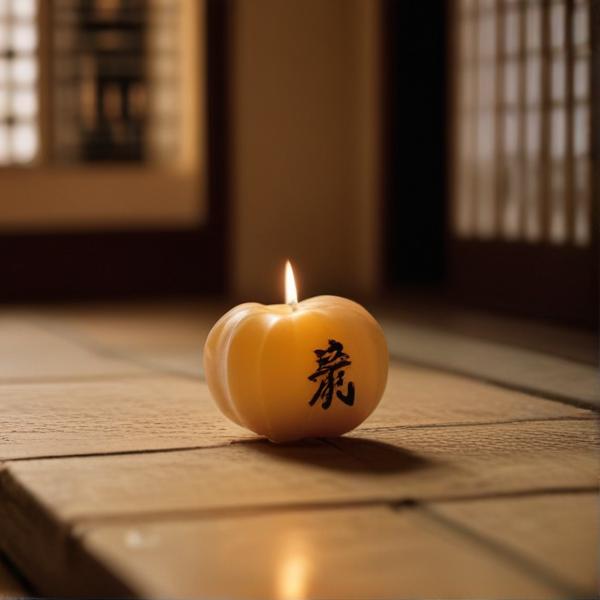基本信息 (Basic Information)
含义与用法 (Meanings & Usage)
中文核心释义 (Core Chinese Meaning): 不好意思、害羞,因见不得人、感到惭愧而内心局促。
英文核心释义 (Core English Meaning): shy, ashamed, feeling embarrassed or bashful.
象形意义 / 为何这么写 (Pictographic Meaning / Writing Rationale)
文言文释义 (Classical Chinese Meaning)
与现代意义相近,都表示羞愧、害羞。Similar to modern meaning, referring to feeling ashamed or shy.
深入学习 (In-depth Study)
字源故事 (Origin Story)
字形演变 (Character Evolution)
常用词语和例句 (Common Words & Examples)
害羞 (to be shy, to feel bashful)
她见到陌生人时会害羞,不敢说话。
Eng: She feels shy and doesn't dare to speak when meeting strangers.
羞愧 (to feel ashamed, guilty)
他说了谎后感到非常羞愧。
Eng: He felt very ashamed after telling a lie.
羞耻 (shame, sense of shame)
做坏事应该感到羞耻。
Eng: One should feel ashamed for doing bad things.
相关成语 (Related Idioms)
含羞草
Meaning: sensitive plant (mimosa), describes shyness.
多语言翻译 (核心释义) (Translations (Core Meaning))
- French: honte, timidité
- German: Scham, Schüchternheit
- Spanish: vergüenza, timidez
- Italian: vergogna, timidezza
- Portuguese: vergonha, timidez
- Russian: стыд, застенчивость
- Arabic: خجل، حياء
- Persian: شرم، خجالت
- Dutch: schaamte, verlegenheid
- Polish: wstyd, nieśmiałość
- Vietnamese: xấu hổ, mắc cỡ
- Ukrainian: сором, сором'язливість
视频学习资源 (Video Learning Resources)
通过以下链接在热门视频网站搜索 "羞" 的更多讲解:
Search for more explanations of "羞" on popular video sites:
- 在 Bilibili.com 搜索 "羞 字源 说文解字" (Search on Bilibili)
- 在 YouTube.com 搜索 "xiū character origin etymology" (Search on YouTube)
网络参考 (Web References for "羞") ()
网络内容摘要 (Web Content Summary):
羞(拼音:xiū)是汉语常用字。本义为进献、赠送,源于甲骨文与金文中“手持羊”的形象,表示将美味食物献给他人。 Xiū is a commonly used Chinese character that originally meant "to offer" or "to present," derived from ancient script showing a "hand holding a sheep," symbolizing offering delicious food to others.
- 引申含义:“羞”后来引申为“美味食品”,也用作表示“感到羞耻”或“羞辱”。 Extended meanings: "Xiū" also came to mean "delicacies" (delicious food), and later took on the meaning of "feeling ashamed" or "to shame/embarrass."
- 特别用法:古文中本义多见于“羞馐(xiū xiū)”,现代多用作“羞耻”、“害羞”等表达羞愧或难为情的情感。 Special usage: In ancient texts, its meaning of "offering food" appears in terms like "羞馐" (delicacies); in modern Chinese, it's mostly used in words like "羞耻" (shame), "害羞" (shy), expressing feelings of embarrassment or modesty.
- 易混淆点:与“馐(xiū)”易混。“馐”仅指美味食物,“羞”则可表示情感。 Common confusion: Often confused with "馐 (xiū)" which only means delicious food, while "羞" also refers to emotions like shame or shyness.
- 常用成语:如“无地自容”(羞愧到无法自处)、“羞涩”(害羞,不自然)等。 Common phrases: For example, "无地自容" (too ashamed to show one's face), "羞涩" (shy, bashful), etc.
汉字"羞"的起源、演变过程-汉字字源辞典
会意字。该字在甲骨文或金文中从又持羊,会进献之意。因"丑"与"羞"偶然同音,遂为形声字。本义为进献。 《说文》:"羞,进献也。从羊,羊所进也;从丑,丑亦声。" 引申为所进献的精美食品。 《周礼·天官·膳夫》:"膳夫掌王之食饮膳羞。
羞(汉语文字)_百度百科
羞(拼音:xiū)是汉语一级通用规范汉字(常用字)。此字始见于商代甲骨文及商代金文,古字形从手持羊。"羞"的本义指进献食品,引申指美味食品。后用"羞"的后起形声字"馐"表示此二义。"羞"又指羞耻,用作使动,表示感到羞辱或耻辱。
更多图片 (羞 More Images) ()
